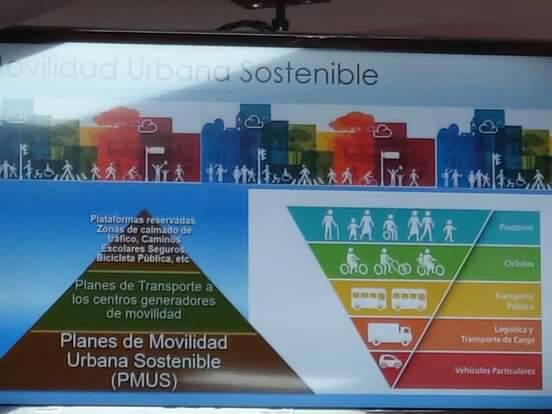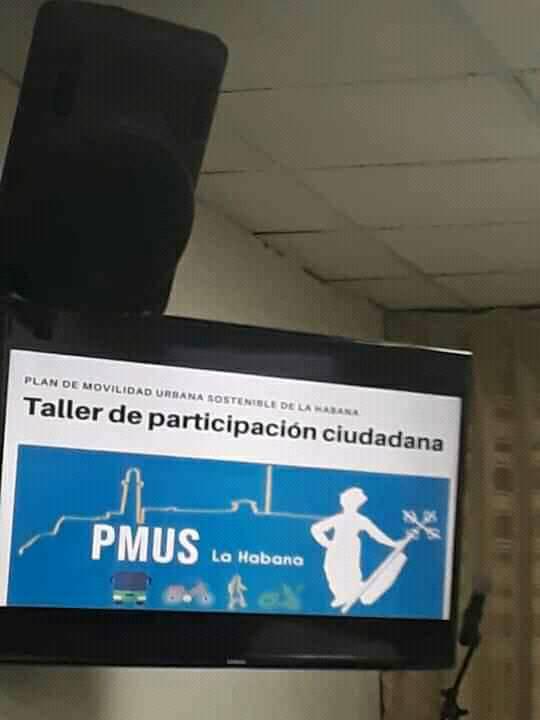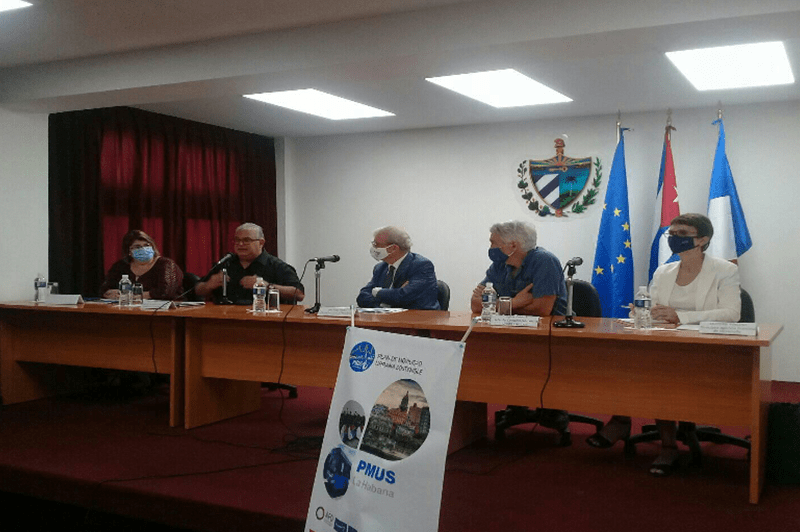A forum and a participation workshop were held to socialise the sustainable mobility issues being worked on in the framework of EUROCLIMA+.
Havana, Cuba, May 5, 2021.- The city of Havana, through the General Directorate of Provincial Transport, held Inauguration Week for the projects Sustainable Urban Mobility Plan of Havana and the pilot project for the improvement of the recovery of public space. This was carried out in the framework of the EUROCLIMA+ programme with support from the French Development Agency (AFD).
The three-day event took place April 21 to 23. It consisted of a forum and a workshop for citizen participation, with the aim of socialising issues of sustainable mobility, sustainable development, accessibility and energy and mobility, among others. The General Directorate of provincial Havana transport also presented the Project to improve mobility in the October 10 corridor.
Forum for Havana’s SUMP
The forum was held on April 21 at the Provincial Government Theatre. The forum was opened by the Director General of Foreign Trade and Institutional Relations, Luis Góngora; the Head of Cooperation of the European Union, Juan Garay and on behalf of the French Embassy, Patrice Paoli.
The technical aspects of the projects of the EUROCLIMA+ programme were presented by Abel López Jaramillo, director of INGEROP, the consultancy firm contracted to carry out the technical implementation.
"Mobility should be a human right for life in the modern era," said Abel López.
The projects “Sustainable Urban Mobility Plan for Havana” and "Recovering public space of the Eje Galiano" aim to reformulate the modal split in the Cuban city towards more sustainable modes, such as walking, cycling and public transport.

During the forum, the director of INGEROP detailed the automatic tools for measuring mobility in Havana, including digital vehicle counting at intersections and mobile phone-based mobility studies. These studies will serve to diagnose the relationship between travel, urban structure and daily mobility.
The long-term contribution of a SUMP is to transform the way spaces and cities are inhabited, as Etienne Lhomet, Sustainable Mobility Engineer, explained.
International studies show that this is achieved with mobility planning that integrates studies, territorial and urban planning. For this, the engineer David Álvarez Castillo presented the best practices for the implementation of Sustainable Urban Mobility Plans (SUMP) in the world. Architect Manuel Calvo offered a link between cities, sustainability and ecology.
The forum was attended by civil society, journalists and the general public, who expressed their doubts and needs to improve mobility in Havana. The forum provided an opportunity to identify areas of opportunity and to define what is expected of citizens for the implementation of the projects.
The forum was closed by Deputy Economic Minister Naima Alfonso Acosta.
Participation Workshop

For April 22 and 23, a participatory workshop was organised in the Main Auditorium of the PREGER/Ministry of Transport. Participants included transport operators, delegates of the people's power, councils of municipal administrations, among other key actors for the development of the city.
The main topics covered in the workshops were: Introduction to Sustainable Urban Mobility Plans; Urbanism and Mobility, an inseparable binomial; Keys to making a good SUMP; What is sustainability? What is sustainable development? Energy and materials; Metabolic flows of human societies; Basic concepts of primary and final energy; Carrying capacity and ecological footprint; How much do we consume and how much do we have?; Compact city and diffuse city; practices in urban mobility; Mobility Vs accessibility; and Energy and mobility.
For the preparation of Havana’s SUMP, a participatory approach is used through interviews and dialogue with key actors and stakeholders. This is to ensure their involvement in the implementation of the project. The participatory forum is one of the elements for meeting this objective, together with other activities that are developed in parallel, such as focus groups, forums, training, mobility surveys in households, public transport and centres of attraction, among other field works.
The projects “Sustainable Urban Mobility Plan of Havana” and “Recovery of the public space of the Eje Galiano” are part of the Urban Mobility sector of the EUROCLIMA+ programme which are implemented by the French Development Agency (AFD). They have a budget of 500,000 euros provided by the European Union.
About EUROCLIMA+
EUROCLIMA+ is a programme funded by the European Union to promote environmentally sustainable and climate-resilient development in 18 Latin American countries, particularly for the benefit of the most vulnerable populations. The Programme is implemented under the synergistic work of seven agencies: the Spanish Agency for International Development Cooperation (AECID), the French Development Agency (AFD), the Economic Commission for Latin America and the Caribbean (ECLAC), Expertise France (EF), the International and Ibero-America Foundation for Administration and Public Policy (FIIAPP), the German Society for International Cooperation (GIZ), and UN Environment.
For more information:
This email address is being protected from spambots. You need JavaScript enabled to view it.euroclimaplus.org
www.euroclimaplus.org
